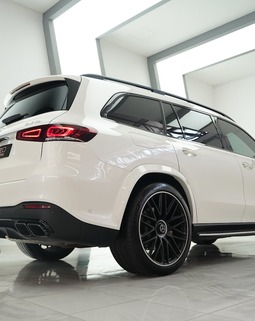Buying a used car in Swaziland can be a smart and budget-friendly choice—but only if you know exactly what to look out for. A hasty or uninformed decision can cost you thousands in repairs, legal trouble, or worse—being stuck with a vehicle you can’t even register. Whether you're buying from a dealer or a private seller, this guide will walk you through all the essential checks, documents, and tips to help you drive off with confidence.
Why Buying Used Makes Sense in Swaziland
Swaziland (also known as Eswatini) has a growing used car market thanks to imports from Japan, South Africa, and other regions. For many locals, buying used offers better value for money and easier access to vehicles that would otherwise be out of reach. Plus, platforms like Cartsenga.com have made it easier than ever to browse listings, compare prices, and connect with sellers in just a few clicks.
1. Check the Vehicle History Report
The first rule of thumb when buying a second-hand car? Always dig into its history. A proper vehicle history report can reveal:
-
Accident history
-
Odometer tampering
-
Outstanding loans
-
Previous ownership records
Ask the seller for the chassis or VIN number, and verify it using local Swazi platforms or regional tools like TransUnion Auto or VINCheck.
2. Inspect the Exterior and Interior Carefully
Don’t get distracted by a shiny coat of paint—surface cosmetics can hide deeper issues. Here’s what to look for:
Exterior
-
Rust spots especially on wheel arches, undercarriage, and door edges
-
Mismatched paintwork (a sign of previous accidents)
-
Cracks or chips on windshields and lights
-
Tyre condition – uneven wear could mean alignment issues
Interior
-
Dashboard warning lights
-
Condition of upholstery – torn seats may reflect poor maintenance
-
Functioning of air conditioning, radio, and windows
-
Mileage – suspiciously low numbers? Could be tampered.
Pro tip: If you’re not mechanically inclined, bring along a trusted mechanic or use inspection services offered by garages in Mbabane, Manzini or via Cartsenga.com.
3. Under the Hood – Mechanical Checks
This is where the real health of a vehicle lies. Look at:
-
Engine oil level and colour – dark and dirty oil may signal overdue servicing
-
Coolant level – low or murky coolant can indicate a leak
-
Battery terminals – corrosion is a bad sign
-
Belts and hoses – should be free of cracks or wear
Also, check if the car starts smoothly and idles without vibrating or stalling.
4. Take It for a Test Drive
Never skip the test drive. Here’s what to pay attention to:
-
Engine responsiveness when accelerating
-
Brake performance – does the car pull to one side?
-
Suspension comfort – any clunking or rattling sounds?
-
Steering alignment – car should drive straight on a flat road
Ideally, test it on different terrains and speeds. In Swaziland, that means city roads, a bit of gravel, and highway stretches like the MR3.
5. Verify the Car’s Registration Documents
In Swaziland, you’ll need to review the following:
-
Vehicle Registration Certificate (Blue Book)
-
Proof of Ownership
-
Clearance from Royal Eswatini Police (REPS) if required
-
Import papers for Japanese or South African vehicles
Make sure the chassis number on the car matches the one on the registration. If anything looks fishy, walk away.
More details on registration steps can be found on Cartsenga.com’s driving tips section.
6. Ask for a Roadworthy Certificate
In Swaziland, a Roadworthy Certificate is legally required when transferring ownership. This certificate verifies that:
-
Brakes, lights, and indicators work properly
-
Tyres meet minimum tread depth
-
Windscreen is free from critical damage
-
Steering and suspension are in safe condition
Make sure it’s up to date. If not, factor in the cost of getting one, which usually ranges from E400–E800.
7. Confirm There Are No Outstanding Fines or Loans
Don’t get stuck paying someone else’s debts. Before sealing the deal:
-
Ask for a debt clearance letter from the seller’s financing bank (if any)
-
Visit your local Revenue Authority or traffic police office to check fines
-
Ask the seller to provide a Sworn Affidavit of Sale
8. Check Insurance History and Cost
Was the car previously insured? A history of claims or write-offs might mean hidden damage. After verifying, you’ll need:
-
A new insurance quote – compare providers like Swaziland Royal Insurance Corporation (SRIC) or Old Mutual Eswatini
-
Consider Third Party vs Comprehensive Cover
Use tools from Cartsenga.com to get the latest on local insurance options and pricing.
9. Beware of Stolen Vehicles
Unfortunately, vehicle theft remains an issue in Swaziland. To avoid falling for a scam:
-
Crosscheck the VIN with police databases (REPS)
-
Use official platforms like eNatis or Vehicle Registration System
-
Verify the seller’s ID and proof of residence
10. Check If the Vehicle Is a Parallel Import
While Japanese imports are popular in Eswatini, some may lack proper documentation or modifications. Make sure:
-
Speedometer is converted from km/h if originally in mph
-
The vehicle has right-hand drive configuration
-
Lights meet Swazi traffic standards
For more on import compliance, visit our Import Guide section.
11. Negotiate Smartly
Once everything checks out, it’s time to talk price. Use these tips:
-
Research similar listings on Cartsenga.com or local Facebook groups
-
Point out repair or service needs to bargain down
-
Be prepared to walk away – emotional buying leads to bad decisions
12. Finalize the Sale with a Contract
Never exchange money without a written agreement. A Bill of Sale should include:
-
Full names and ID numbers
-
Agreed price
-
Date of sale
-
Vehicle description and VIN
-
Signatures of both parties
Get it witnessed at your nearest lawyer’s office or police station, especially for high-value vehicles.
13. Register the Car Under Your Name
Post-purchase, register your car at the Swaziland Revenue Authority (SRA) or licensing office. You’ll need:
-
The Bill of Sale
-
Roadworthy Certificate
-
Proof of address and ID
-
Vehicle Registration Book
Registration fees range from E300–E800 depending on vehicle type and size.
14. Schedule Routine Maintenance
After all that stress, make sure your car stays road-ready. Book a service inspection at a trusted garage in Mbabane, Nhlangano, or via partner mechanics on Cartsenga.com.
Common services include:
-
Oil & filter change
-
Brake check
-
Tyre rotation
-
Battery test
15. Protect Yourself From Future Scams
The used car market is booming—and so are scams. Stay sharp by:
-
Avoiding deals that are “too good to be true”
-
Not paying upfront deposits without receipts
-
Insisting on face-to-face meetings
Learn more scam prevention tips in our Buyer Protection Hub.
Conclusion
Buying a used car in Swaziland doesn’t have to be a risky affair. With careful inspection, paperwork verification, and the right resources, you can find a reliable ride that fits your needs and budget. Always lean on trusted platforms like Cartsenga.com to compare listings, research vehicle types, and stay updated on the latest buying guides and legal procedures.
FAQs
1. What’s the safest way to pay for a used car in Swaziland?
Use bank transfers or mobile money platforms like MTN MoMo, and always get a receipt.
2. Can foreigners buy used cars in Swaziland?
Yes, but they must provide proof of legal stay and a local address for registration.
3. Are there reliable online platforms to buy used cars locally?
Yes! Start with Cartsenga.com, which curates listings for Swazi drivers.
4. What documents should I receive after purchase?
You should get the Bill of Sale, Roadworthy Certificate, Registration Book, and proof of payment.
5. Can I register a used car without a Roadworthy Certificate?
No. It’s a legal requirement to register and drive your vehicle on public roads.





